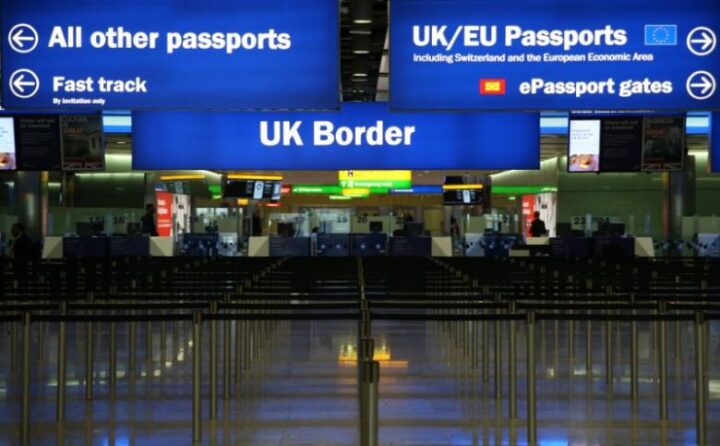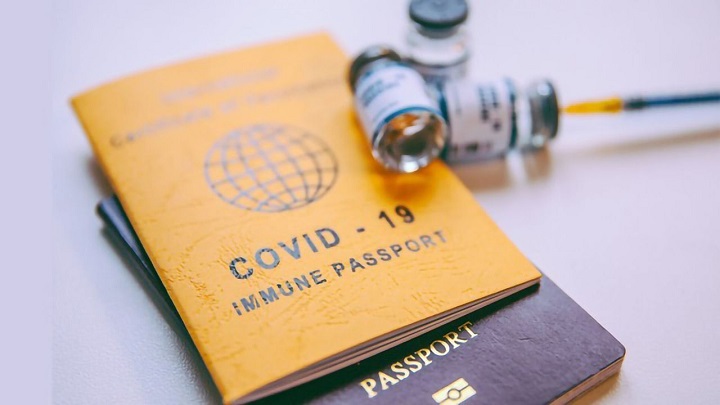UK Border control is seen in Terminal 2 at Heathrow Airport in London June 4, 2014. REUTERS/Neil Hall/File Photo - RTSU5Z2
Several countries including the UK, Israel and Singapore have banned passengers from some southern African countries over a new COVID-19 variant first identified in the region.
On Thursday, the new variant, B.1.1. 529, was discovered in South Africa.
Confirming the discovery in a statement on Thursday, the country’s National Institute for Communicable Diseases (NICD) said 22 positive cases of the new variant have been detected in the country so far.
The variant is said to have a high number of mutations, which are concerning for predicted immune evasion and transmissibility.
Advertisement
The UK, on Thursday, temporarily banned air travels from six southern African countries — South Africa, Botswana, Eswatini, Lesotho, Namibia and Zimbabwe — with immediate effect to prevent importation of the variant into Britain.
The UK Health Security Agency believes that the variant is the most worrying they have seen, and could pose a bigger threat than the Delta variant.
“From noon tomorrow six African countries will be added to the red list, flights will be temporarily banned, and UK travellers must quarantine,” the UKHSA tweeted.
Advertisement
Israel, which recorded its first confirmed three cases of the B.1.1. 529 on Friday, has also stopped entry from the six countries, adding Mozambique to its list.
Israel also barred its citizens from travelling to southern Africa. Returning Israelis will be required to quarantine.
The Singaporean ministry of health also announced on Friday that all travellers with recent travel history to Botswana, Eswatini, Lesotho, Mozambique, Namibia, South Africa and Zimbabwe will from 11.59pm on Saturday no longer be allowed to enter into or transit through Singapore.
The restriction also applies to travellers who have obtained prior approval for entry into Singapore — as long as they have been in those countries in the last 14 days.
Advertisement
The Indian health ministry has also issued an alert for the new variant, though it is yet to suspend travel from southern Africa.
Rajesh Bhushan, Indian health secretary, said all international travellers coming to India from “at-risk” countries must be subjected to rigorous screening and testing.
“This variant is reported to have a significantly high number of mutations, and thus, has serious public health implications for the country, in view of recently relaxed visa restrictions and opening up of international travel,” Bhushan said.
The Nigerian government is yet to make any announcements on whether it will be imposing travel restrictions as of press time.
Advertisement
Add a comment







